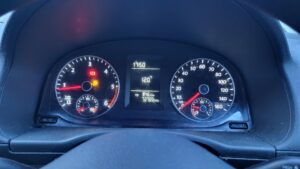Pay Less Tax; Giving HMRC Less Money Legally.
Introduction.
 You can legally pay less tax with the Government’s approval, I got back nearly £3,000.
You can legally pay less tax with the Government’s approval, I got back nearly £3,000.
This blog post refers ONLY to expenses that you can claim back from your self-employed work that are related to your self-employed work. If you have set up a Limited Company then you can claim back similar expenses from your “employer”. Claiming back proper expenses means that you pay HMRC (His Majesty’s Revenue and Customs – AKA The Tax Man) less tax. You have a legal AND moral duty to pay your tax. You are under no obligation to arrange your financial affairs in a way that allows the HMRC to grab as much as they want. – so said (not those exact words though) a judge in 1936
Speak to an accountant to make sure you are claiming what you are allowed.
What I am describing is legitimate tax avoidance. Claiming back legitimate expenses is a process overlooked by many independents. Don’t take what I says as gospel truth though as I might be wrong with some minor detail. It is how I do it and my accountant hasn’t had to correct me yet.
If you are non-UK then your national rules will probably be different, but I think you will find that the basic principles are the same, and much will apply to you.
Your Type Of Employment – Employed and/or Self-Employed.
Even if you have a PAYE day job, and P&S is a side-hustle, you must register as self-employed for the purposes of your P&E events business if your additional income goes above £1,000.00 per year. If you are doing P&E full-time then you must still register as self-employed. You don’t need to register as self-employed if you operate as a Limited Company, in which case you can be a Shareholder, Director and Employee.
Funnily enough you can have a Limited Company and be an employee of it, but still be self-employed in another area. Maybe P&E is your main day job as the Limited Company, but you also do something else unrelated to the Limited Company, maybe pet portraits as self-employed – this sort of arrangement could mean that you might not need to register for VAT if your turnover goes above the VAT threshold, which is currently £85,000 per year – more on this in another post later. If this is your situation then make sure you have a separate bank account for your self-employed work, and preferably a 2nd phone number as well.
Pay Less Tax By Reclaiming Expenses.

Guard Cat – Don’t Mess With Me
Once registered as self-employed, you have a wide range of tax benefits that you can make use of to pay less tax, and the main one is mileage expenses. You can claim for every single mile of P&E related mileage that you do. Why bother you might say, it all comes out of the same bank account? Well every single penny that you claim back on mileage means you pay less tax. Do remember that you can only claim expenses that are wholly, exclusively and necessarily for the running of your business. You can also claim, as legitimate business expenses other things such as training books, training DVDs, that plein-air painting courses in Italy, partial upkeep of your guard dog or guard cat – I kid you not, and so-on and so-forth.
Mileage Expenses.
 The biggest one of the lot. Basically, for every single car mile that you travel on P&E business you can claim back 45p per mile tax free for the first 10,000 miles per year, and 25p per mile tax free for all mileage over 10,000 miles per year. The reason that you can claim back more for the first 10,000 miles per year is because that extra 20p a mile includes an allowance for repairs and maintenance. If you claim back the full 10,000 miles worth per year then you will get £4,500.00. If you are a taxpayer at 20% that means you have a tax saving of £950.00. That is £950.00 less tax you pay HMRC.
The biggest one of the lot. Basically, for every single car mile that you travel on P&E business you can claim back 45p per mile tax free for the first 10,000 miles per year, and 25p per mile tax free for all mileage over 10,000 miles per year. The reason that you can claim back more for the first 10,000 miles per year is because that extra 20p a mile includes an allowance for repairs and maintenance. If you claim back the full 10,000 miles worth per year then you will get £4,500.00. If you are a taxpayer at 20% that means you have a tax saving of £950.00. That is £950.00 less tax you pay HMRC.
If you run 15 events a month, and let us assume that you do an average of 10 miles each to get to the venue, and 10 miles back then that makes 20 miles a time. That makes 15 x 20 = 300 miles per month. You can claim back 300 x .45p = £135.00 per month. If fuel is £1.60 per litre, and your car does 9 miles per litre then it costs you £1.60/9 Miles = 18p a mile in fuel – you claim back (initially) 45p per mile. This is tax free and gives you a “profit” of 27p per mile driven, after 10,000 miles a year your “profit” goes down to 7p per mile driven.
Get a simple lined notebook, put it in the car and note every journey. From my home to The Range is a 6 mile round trip, and from my home to Hobbycraft is a 4 mile round trip. Then if I go from my home to The Range and back, or from my home to Hobbycraft and back I note the date, the rough time and the mileage in the notebook. If I am going from home to The Range, to Hobbycraft and home I set the milometer to zero and note the whole journey. If I go to The Range, then to Tesco, then home, I note the journey down in the book but ONLY book for home to The Range and home.
Do this and see how much money you can actually claim back. At the end of the month total every mile up, multiply by 45p per mile, write an invoice from yourself to your self-employed self, or your company, for the money and pay yourself from the relevant bank account.
I note every journey I make whether I claim or not. If the Tax Man comes to do a check on your tax finances, they will want evidence that you have actually run up these expenses. The notebook should persuade them of that. Tie in the notebook entry to your receipts (which you need to keep for 3 years I think) and you have a cast iron case.
Other Self-Employed Reclaimable Expenses.
If you work from home you can also claim for part of your utility bills, part of your rent or mortgage costs. You can also claim part of your council tax bill and any excess internet and mobile phone usage. Don’t forget what is called the Home Office Allowance, a flat rate based on the number of hours you actually “work from home”. You can also claim back accountant’s fees as an expense.
Your accountant will advise you about what you CAN claim. The accountant will probably advise you to claim back less than you can. My advice is claim back less than you can. An old Army phrase is “Don’t kick the arse out of it”.
Never set aside a room in your home if you own it, solely for the purposes of the business. If you did this, you could be charged Capital Gains Tax on the value of the room when you come to sell the property. Always use such a room for personal purposes as well and have some of your normal household items in there. A bookcase of “normal” books is always a good option.
Backdating Unclaimed Expenses.
You might now realise that you have gone a few years without claiming things you could have claimed. HMRC allows you to back date some claims a few years. So, if you have been going for 3 years, and you haven’t claimed expenses back, you can still do so – I got back about £3,000. I’m not sure how far back you can go though, ask your accountant.
Any questions, comments, requests, or corrections? Please email me [email protected]
I hope you found this useful. The next post deals with making more money from your images in the run-up to Christmas.
